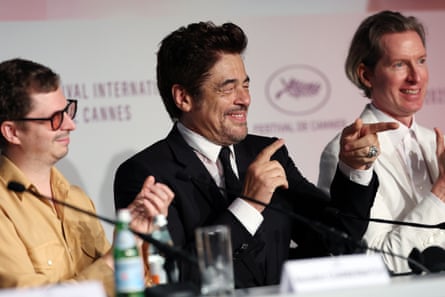Wes Anderson at Cannes: Cinema, Culture, and the Debate Over Film Tariffs

Wes Anderson, one of cinema’s most distinctive auteurs, has never shied away from bringing his unique perspective both on and off the screen. At this year’s Cannes Film Festival, Anderson not only drew crowds for his new movie but sparked vibrant debate over the future of international filmmaking. His pointed comments about recent plans for U.S. film tariffs underscored the tension between art and politics on the world stage.
Wes Anderson’s Cannes Moment
As the red carpet unfurled for the Cannes Film Festival, Wes Anderson took center stage. Not just for his anticipated release, but for his sharp response to U.S. President Donald Trump’s proposal to impose a 100% tariff on movies produced outside the United States. Anderson, promoting his latest film The Phoenician Scheme, humorously questioned the practicality of such measures, asking, “Can you hold up the movie in customs?” while highlighting the global nature of modern cinema. His wit masked a grave concern shared by many filmmakers: the threat of protectionist policies to creative freedom and international collaboration.
Global Cinema Under Threat
The proposed tariffs have sent shockwaves through Hollywood and beyond. Many in the film industry see these plans as both unworkable and damaging. As detailed in The Guardian’s coverage, Anderson emphasized that such moves would hurt all filmmakers, regardless of nationality. His latest film, largely shot in Germany, exemplifies how global cooperation fuels today’s cinema. The current debate inspired not just directors but also distributors, producers, and cultural leaders to rally for open borders in filmmaking.
Industry Perspective: Tax Credits vs. Tariffs
While Anderson’s satire points to policy absurdities, industry insiders recognize more tangible economic impacts. According to The Atlantic, the film community is experiencing existential anxiety. Productions increasingly venture abroad to take advantage of tax incentives and reduced costs. Instead of tariffs, major voices suggest new federal tax credits and incentives to boost domestic production without punishing overseas collaboration. Even the actors’ unions voiced cautious support for strategies that strengthen Hollywood while avoiding protectionism.
Cannes: Where Art and Politics Meet
The Cannes Film Festival has always blended glamour with political discourse. This year, the focus on Donald Trump’s tariff plans dominated conversations far beyond movie premieres. As POLITICO reports, European filmmakers voiced fears that such policies could curtail cultural diversity and make American audiences less exposed to foreign stories. Anderson’s remarks, alongside rallies by filmmakers on Cannes’ iconic beach, highlight growing calls to safeguard cinema’s openness and richness.
Conclusion: Wes Anderson and the Future of Cinema
Wes Anderson’s presence at Cannes this year wasn’t just about his film’s whimsical charm. It’s a testament to his role as both artist and advocate for a borderless film industry. As nationalism meets creative expression, Anderson’s voice—and those of his peers—remind us that cinema thrives when ideas and stories travel freely. How Hollywood and global cinema respond to these challenges may redefine not only the industry’s business models but also its soul. To dig deeper into the ongoing debate and Anderson’s latest work, explore further reading from The Guardian and The Atlantic.